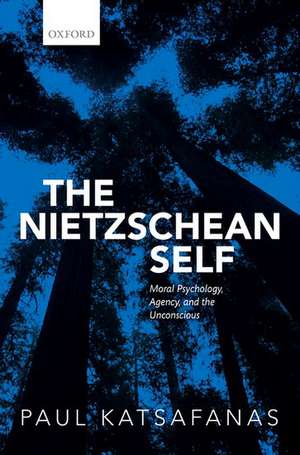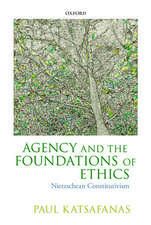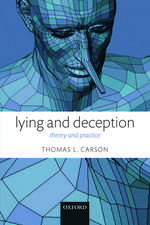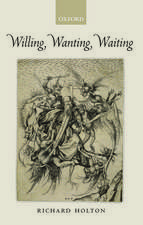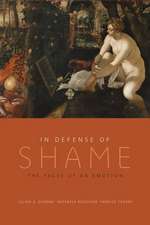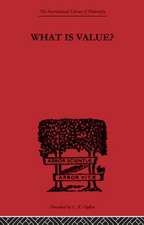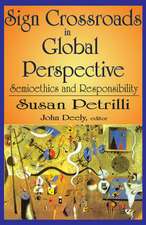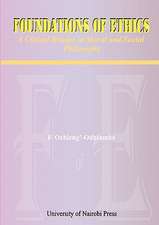The Nietzschean Self: Moral Psychology, Agency, and the Unconscious
Autor Paul Katsafanasen Limba Engleză Hardback – 25 feb 2016
| Toate formatele și edițiile | Preț | Express |
|---|---|---|
| Paperback (1) | 197.25 lei 31-37 zile | |
| OUP OXFORD – 13 dec 2018 | 197.25 lei 31-37 zile | |
| Hardback (1) | 523.46 lei 31-37 zile | |
| OUP OXFORD – 25 feb 2016 | 523.46 lei 31-37 zile |
Preț: 523.46 lei
Preț vechi: 647.22 lei
-19% Nou
Puncte Express: 785
Preț estimativ în valută:
100.18€ • 108.78$ • 84.15£
100.18€ • 108.78$ • 84.15£
Carte tipărită la comandă
Livrare economică 12-18 aprilie
Preluare comenzi: 021 569.72.76
Specificații
ISBN-13: 9780198737100
ISBN-10: 0198737106
Pagini: 306
Dimensiuni: 162 x 240 x 23 mm
Greutate: 0.58 kg
Editura: OUP OXFORD
Colecția OUP Oxford
Locul publicării:Oxford, United Kingdom
ISBN-10: 0198737106
Pagini: 306
Dimensiuni: 162 x 240 x 23 mm
Greutate: 0.58 kg
Editura: OUP OXFORD
Colecția OUP Oxford
Locul publicării:Oxford, United Kingdom
Recenzii
... elegantly-written, with complex exegetical work, philosophical discussion, and historical scholarship woven neatly into an admirably clear and readable whole.
an important book that all scholars interested in Nietzsche's views on mind and agency will need to study carefully.
For anyone teaching a seminar on Nietzsche or the history of moral psychology, I can recommend without reservation putting The Nietzschean Self on your syllabus. It may be possible to write a better book on Nietzsches moral psychology, but no one has done so yet.
The book is clear and engaging. Katsafana's makes judicious use of concepts and theories from more recent philosophical psychology to illuminate Nietzsche's views, and he offers detailed, insightful discussions of relevant secondary literature.
this volume deserves to be read seriously by all those with an interest in Nietzsche and moral psychology.
The picture Katsafanas offers is compelling, well articulated, and well defended. The book adds to our understanding of several timely debates, and thus should be read by anyone interested in Nietzsche's moral psychology.
...well organized and clearly written, and some of the interpretive theses Katsafanas advocates present an intriguing countercurrent to some of the most popular views in contemporary Nietzsche scholarship.
an important book that all scholars interested in Nietzsche's views on mind and agency will need to study carefully.
For anyone teaching a seminar on Nietzsche or the history of moral psychology, I can recommend without reservation putting The Nietzschean Self on your syllabus. It may be possible to write a better book on Nietzsches moral psychology, but no one has done so yet.
The book is clear and engaging. Katsafana's makes judicious use of concepts and theories from more recent philosophical psychology to illuminate Nietzsche's views, and he offers detailed, insightful discussions of relevant secondary literature.
this volume deserves to be read seriously by all those with an interest in Nietzsche and moral psychology.
The picture Katsafanas offers is compelling, well articulated, and well defended. The book adds to our understanding of several timely debates, and thus should be read by anyone interested in Nietzsche's moral psychology.
...well organized and clearly written, and some of the interpretive theses Katsafanas advocates present an intriguing countercurrent to some of the most popular views in contemporary Nietzsche scholarship.
Notă biografică
Paul Katsafanas is Associate Professor of Philosophy at Boston University. He works on topics at the interface of ethics and philosophy of mind, including the nature of agency and motivation; the structure of self-consciousness; and the way in which normative claims might be justified. He addresses these topics in part by mining the work of nineteenth-century philosophers including Nietzsche. His recent publications include Agency and the Foundations of Ethics: Nietzschean Constitutivism (OUP, 2013), 'Nietzsche and Kant on the Will: Two Models of Reflective Agency' (Philosophy and Phenomenological Research, 2014), and 'Fugitive Pleasure and the Meaningful Life: Nietzsche on Nihilism and Higher Values' (Journal of the American Philosophical Association, forthcoming).
